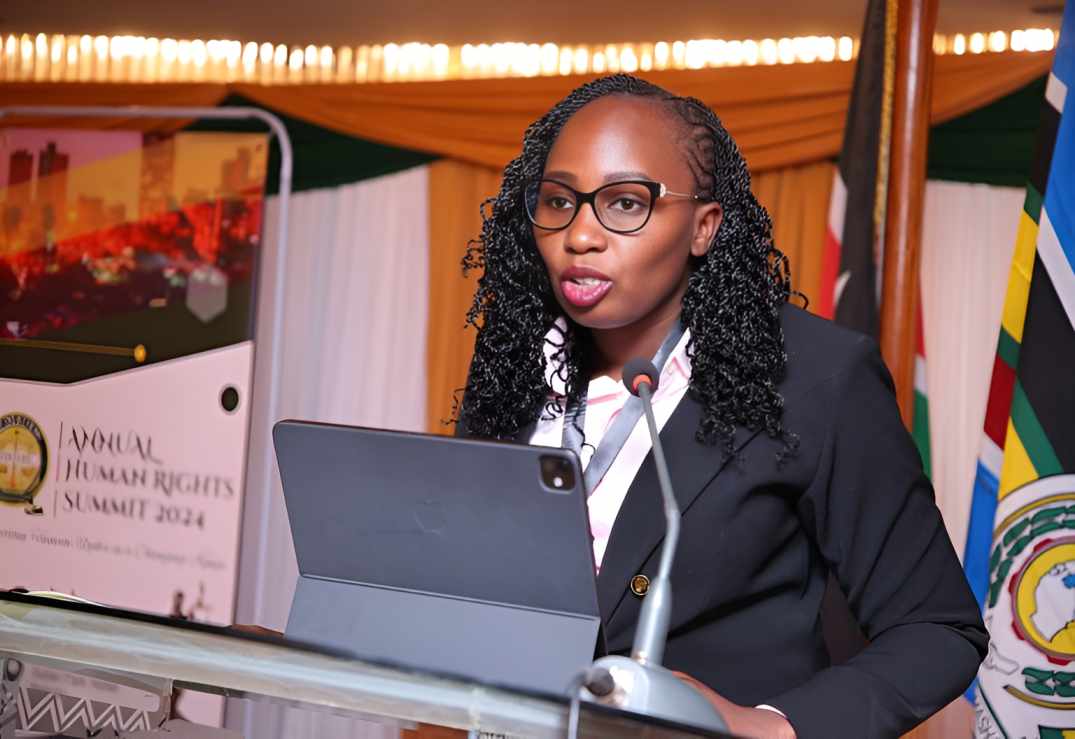The Law Society of Kenya (LSK) has declared its intention to initiate contempt of court proceedings against Inspector General of Police, Douglas Kanja, accusing him of disobeying judicial directives concerning the handling of public demonstrations.
This development, which adds to the growing scrutiny facing the country’s police leadership, was revealed by LSK Council Member Gloria Kimani during a live television interview on Thursday, June 19, 2025.
Kimani alleged that police officers have been flouting a 2024 High Court order that mandates all officers deployed to manage protests must be in full uniform, clearly identifiable, and not wearing masks.
“The Law Society obtained specific orders from the court last year,” Kimani explained. “The directive was clear: officers deployed during protests must be in uniform and unmasked. What we are witnessing now, however, is a direct violation of that ruling.”
She confirmed that the Society will be formally moving to court to cite the police boss for contempt, saying: “The IG will be held accountable. The orders were issued by the court, and we’re seeing a blatant disregard for the law.”
This announcement comes shortly after the LSK disclosed it had compiled substantial evidence for potential prosecution of high-ranking state officials at the International Criminal Court (ICC) for alleged crimes including police brutality and forced disappearances during public protests.
LSK President Faith Odhiambo echoed this in recent remarks, stating: “We intend to escalate this to the ICC.
Our findings show a coordinated pattern of abuse. The evidence points to systemic misconduct and collaboration between police and criminal networks.”
While Kimani acknowledged that some officers are dutiful and work hard to protect citizens, she expressed deep concern over the overall conduct of the police service, stating: “Despite a few committed officers, the performance of the police institution as a whole remains far below expectations. What’s playing out now is the result of years of institutional decay.”
Citing recent data, she noted that at least 20 individuals have died while in police custody between January and June 2025.
No police commanders, including Officers Commanding Stations (OCS), have faced disciplinary action.
“We haven’t seen accountability. There’s been no interdictions, no inquiries just silence. And that silence speaks volumes,” Kimani said.
She further warned that enforced disappearances are becoming increasingly common, creating a climate of fear that discourages people from taking part in civic activism.
“Protest organizers are facing threats and, in some cases, vanishing without a trace. It’s now so serious that citizens fear retaliation simply for voicing dissent,” she added.
Kimani also referenced viral videos from recent demonstrations in which members of the public were seen forcibly removing masks from undercover police officers. She attributed this reaction to the police’s failure to comply with the court’s directive.
“Civilians should not have to enforce court orders on the streets. If officers followed the law, such confrontations would not happen,” she stated.
Clarifying Kenya’s legal position on public demonstrations, Kimani noted that the law requires protest organizers only to notify the police, not to seek approval.
“Whether the notice is sent via email or delivered in person, that’s sufficient. The law doesn’t ask for permission just notification so police can provide protection,” she clarified.
Human rights groups, civil society organizations, and political leaders have continued to raise alarm over what they term the increasing militarization of policing in Kenya and the erosion of constitutional safeguards.
Kimani concluded with a strong warning: “If we allow security agencies to act outside the framework of the law, we risk normalizing impunity. That’s a dangerous path for any democracy.”

